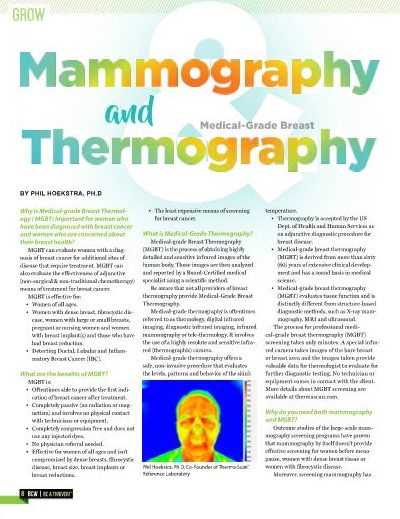Take Charge Of Your Health
Thermography has been subjected to nearly 40 years of rigorous research and has been reviewed in as many as 600 published studies. That’s part of what makes it such a trusted and highly regarded procedure. In fact, it is 90% effective at detecting potential problem areas in breast tissue up to 10 years prior to detection by mammograms or sonograms.
Thermograms are heat-sensitive photographs taken with sophisticated infrared cameras. As our bodies age and evolve, so do our cells. Regular thermograms can track our cellular evolution and reveal any number of potential health issues well in advance of their diagnosis. For this reason, many doctors have come to think of thermograms as a cellular roadmap of the human body.

Thermology is of particular helpful for women who:
- are pregnant or lactating
- non-menopausal
- who have used hormone replacement therapy
- have a history of fibroids
- prior biopsies
- who have exceptionally small or large breasts.
TAKE CHARGE OF YOUR HEALTH
Make breast care an ongoing part of your overall health care plan.
Ask Dr. Pram:
- How to do a thorough self-exams
- Foods and nutrients that impact breast health
- The effects of both the external and internal environment that controls breast health
- Breast health is ever-changing. Schedule a thermogram now to determine your potential for breast cancer
- Learn about the advantages of naturopathy, and other complementary therapies, to create a balanced approach to your health.